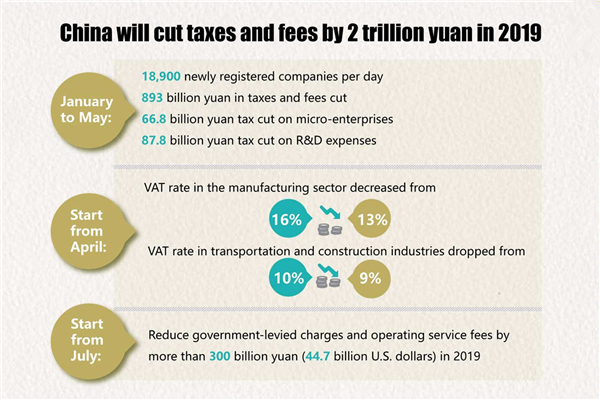The non-compete ban in Australia, set to take effect by 2027, marks a pivotal change for small and medium enterprises (SMEs) and worker mobility across the nation. With this new legislation, approximately three million workers, particularly those earning under $175,000, will have the freedom to seek employment without the restrictions imposed by traditional non-compete clauses. As highlighted by COSBOA advocacy, the ban aims to stimulate economic growth and enhance the earnings potential for affected workers. However, it poses significant challenges for businesses that have long relied on these clauses to protect their investments and client relationships. Small business strategies must now evolve, focusing on innovative compliance and retention methods to thrive in this changing legal landscape of employment law changes.
The impending prohibition of non-compete agreements in Australia heralds a new era for workplace dynamics and business operations. This legislation will empower employees to transition freely between roles without the constraint of restrictive covenants, facilitating greater worker mobility. The implications of this policy extend beyond mere employment terms; it is a crucial step towards reshaping small business strategies within the economy. With the Council of Small Business Organisations Australia (COSBOA) actively seeking to represent the interests of SMEs, businesses will need to explore alternative protective measures and strategies to maintain their competitive edge. The forthcoming changes in employment law promise not only to enhance the economic landscape but also to challenge SMEs to adapt to a more fluid job market and workforce.
Understanding the Non-Compete Ban in Australia
The anticipated non-compete ban in Australia by 2027 is set to alter the legal landscape for employers and employees alike. This legislative change, proposed by the Albanese government, is aimed primarily at enhancing worker mobility and encouraging competition. The ban will notably affect workers earning less than $175,000 annually, impacting a significant number of SMEs across various sectors, including childcare, hairdressing, and retail. By prohibiting non-compete clauses, the government aims to reduce barriers to entry for workers looking to change jobs and pursue new opportunities.
However, this policy shift presents substantial challenges for small business owners who have relied on non-compete clauses as protective measures for their client relationships and proprietary information. Many SMEs will need to rethink their business strategies to safeguard their assets without the legal protection that non-compete agreements previously provided. While the rationale behind the ban involves fostering economic growth and increasing wages, businesses must adapt to a climate where retaining talent and protecting intellectual capital becomes more complex.
The Economic Impact of Banning Non-Compete Clauses
The government’s rationale for banning non-compete clauses is rooted in the belief that such measures stifle economic growth and hinder worker mobility. According to research referenced by the government, these reforms are projected to enhance productivity, leading to an increase of approximately $5 billion to Australia’s GDP annually. With the potential for impacted workers’ wages to rise by up to four percent, this policy aims to create a more vibrant labor market where individuals feel empowered to switch jobs without fear of retribution, thus stimulating economic activity.
However, small businesses may face pressures as they adjust to this new working environment. The removal of non-compete clauses might lead to higher turnover rates, particularly in industries where specialized training is essential, such as healthcare or specific trades. As former employees can freely move to competitors, businesses may find themselves needing to enhance their retention strategies, focusing on offering competitive wages, improved working conditions, and additional benefits to keep their staff from defecting.
Strategies for Small Businesses Post-Ban
As the non-compete ban looms, small business owners must develop alternative strategies to protect their interests and maintain competitive edge. One recommended approach is to implement non-disclosure agreements (NDAs) and confidentiality clauses, which can help shield sensitive business information from being misused by former employees. Additionally, businesses may consider enhancing employee engagement through better workplace conditions and training opportunities, thus fostering a loyal workforce.
Investing in comprehensive training programs can serve as a powerful retention tool. By providing employees with valuable skills and career development opportunities, businesses can increase job satisfaction and reduce turnover rates. Moreover, staying informed about employment law changes and actively participating in COSBOA consultations can help small businesses navigate the challenges presented by the non-compete ban while advocating for their unique needs and concerns.
The Role of COSBOA in Supporting SMEs
The Council of Small Business Organisations Australia (COSBOA) plays a crucial role in supporting SMEs as they prepare for the impending non-compete ban. COSBOA is committed to advocating for small business interests throughout the consultation process, seeking to secure exemptions that will enable businesses to protect their legitimate interests. This includes advocating for provisions that would protect businesses with unique intellectual property or establish safeguards for partnership agreements.
COSBOA also offers resources and guidance to help small business owners strategize effectively in lieu of the non-compete clauses. By participating in industry consultations and leveraging COSBOA’s expertise, SMEs can gain insights into best practices and compliance strategies, ensuring they are well-equipped to adapt to the upcoming changes and mitigate potential risks associated with worker mobility.
Preparing for Employment Law Changes in SMEs
The upcoming changes to employment law in Australia will require SMEs to reassess their current practices and policies proactively. As the government outlines the timeline for the ban’s implementation, businesses should begin preparing for these adjustments by reviewing existing contracts and employee agreements that may be affected. Adequate legal consultation will be necessary to ensure compliance with the new regulations and to avoid potential penalties associated with enforcing outdated clauses.
In addition to legal compliance, SMEs may need to restructure their business models to address the anticipated shift in employee movement. Adopting retention strategies that prioritize employee satisfaction and career development can benefit small businesses in attracting and keeping top talent. By fostering an environment that encourages loyalty and ambition, SMEs can better position themselves in a competitive market that will emerge following the ban on non-compete clauses.
Potential Challenges for SMEs Amid Worker Mobility
The shift towards increased worker mobility, facilitated by the non-compete ban, introduces various challenges for SMEs that depend on specialized skills and trained personnel. With the freedom to switch jobs, employees may choose to leave for competitors offering better wages or working conditions, thereby disrupting the continuity of service and expertise within small businesses. This heightened level of employee movement can create instability and uncertainty for SMEs striving to establish strong, long-term client relationships.
Moreover, increased competition from former employees launching their ventures poses an additional threat to established SMEs. As workers take their skills and knowledge to create new businesses, original employers might find their client base threatened and must devise strategies to retain customers and innovate continually. Understanding these dynamics will be critical for SMEs as they navigate the post-ban economic landscape.
Leveraging Opportunities in a New Economic Climate
While the non-compete ban poses significant challenges, it also presents a range of opportunities for small businesses to innovate and expand. With the prospect of an additional $5 billion in GDP growth and higher wages, the economic climate may become more favorable for SMEs. This renewed focus on competition can drive businesses to improve their offerings, providing better services and enhancing customer engagement as they strive to differentiate themselves in a crowded market.
Furthermore, SMEs have the chance to collaborate with COSBOA to influence policy and create a more supportive environment for small businesses. By engaging in discussions and advocating for balanced regulations, SMEs can not only protect their interests but also contribute to shaping a vibrant economic landscape conducive to growth. Embracing these opportunities while adapting to emerging challenges will be essential for the future success of small businesses in Australia.
Navigating Legal and Compliance Frameworks
As small businesses adjust to the forthcoming legal landscape shaped by the non-compete ban, understanding compliance frameworks becomes increasingly crucial. SMEs must familiarize themselves with potential penalties for attempting to enforce outdated non-compete clauses, as well as any new regulations that will arise from the government’s reforms. Seeking legal expertise to navigate this evolving compliance landscape will help business owners ensure their practices align with legal requirements and safeguard them from potential legal repercussions.
In addition to understanding compliance issues, small businesses should be proactive in documenting their existing agreements and preparing for the upcoming changes. This involves reassessing current contractual obligations and considering how to incorporate effective alternatives, such as confidentiality agreements. By staying informed about legal developments and maintaining transparency with employees regarding these changes, SMEs can foster a collaborative transition into a new era of employment law.
Future of Small Businesses in a Competitive Environment
The future of small businesses in Australia will inevitably be influenced by the non-compete ban and its associated economic shifts. As SMEs adapt to a competitive environment characterized by increased worker mobility and potential disruptions, they must focus on innovative strategies to maintain relevance. This may include leveraging technology to enhance service delivery and collaborating with other businesses to share resources and insights that drive mutual growth.
Moreover, small businesses can play a vital role in shaping the future of the Australian economy by embracing innovation and diversity in their workforce. By fostering inclusive workplaces and supporting entrepreneurial endeavors among their employees, SMEs can cultivate a culture of creativity that aligns with the government’s vision for improved economic conditions. Through strategic adaptability and forward-thinking approaches, small businesses can not only survive but thrive in the post-ban landscape.
Frequently Asked Questions
What is the non-compete ban in Australia and how will it impact small businesses?
The non-compete ban in Australia, set to take effect in 2027, will prohibit non-compete clauses for workers earning under $175,000. This change is expected to significantly impact small businesses (SMEs) that traditionally used these clauses to protect client relationships and trained employees. With approximately three million workers affected, SMEs in sectors like childcare, construction, and retail will need to adopt new strategies for safeguarding their interests without relying on non-compete agreements.
How does COSBOA advocate for SMEs in the context of the non-compete ban Australia?
COSBOA (Council of Small Business Organisations Australia) actively advocates for small and medium enterprises (SMEs) by representing their interests during consultations on the non-compete ban. They seek exemptions for legitimate business needs and encourage SMEs to adopt alternative protection strategies, such as non-disclosure agreements and improving retention through better wages and training.
What are the expected economic impacts of the non-compete ban in Australia?
The non-compete ban in Australia is projected to boost wages by up to four percent for affected workers and contribute approximately $5 billion to the GDP annually. The Albanese government’s reform is designed to enhance worker mobility and competition, leading to potential economic growth and reduced inflation. However, SMEs will need to adapt to this shift to thrive in a more competitive environment.
What challenges will SMEs face due to the non-compete ban in Australia?
With the impending non-compete ban in Australia, SMEs may face challenges such as increased competition for talent, loss of client relationships, and potential legal costs associated with compliance. They may also need to navigate compensation claims from impacted employees and ensure adherence to regulatory guidelines as they adapt to the new employment law changes.
What alternatives can small businesses implement to adapt to the non-compete ban in Australia?
To adapt to the non-compete ban in Australia, small businesses should consider implementing non-disclosure agreements to protect sensitive information, enhance employee retention through competitive wages and training, and consult with legal experts for compliance measures. Engaging with COSBOA’s advocacy efforts can also provide additional support during this transition.
Why was the non-compete ban introduced in Australia?
The non-compete ban was introduced in Australia to address the misuse of these clauses, which were found to hinder worker mobility and contribute to lower wages. The Albanese government’s goal is to promote economic growth by allowing workers more freedom to switch jobs and pursue entrepreneurial opportunities, thus fostering a more dynamic workforce and stimulating competition.
When will the non-compete ban take effect in Australia?
The non-compete ban in Australia is set to take effect in 2027. The government has planned consultations with industry groups from 2025 to 2026 to finalize regulations and ensure a smooth transition for businesses and workers affected by the new employment law changes.
How could the non-compete ban influence worker mobility in Australia?
The non-compete ban is expected to enhance worker mobility in Australia by eliminating the restrictions that previously prevented employees from switching jobs or starting their own businesses. This newfound freedom may lead to better employment conditions and greater opportunities for workers, which can ultimately benefit SMEs looking to attract talent.
What sectors will be most affected by the non-compete ban in Australia?
The non-compete ban will predominantly impact sectors heavily populated by SMEs, including childcare, construction, hairdressing, retail, hospitality, administrative support, and healthcare support. These industries have historically relied on non-compete clauses to protect their client relationships and business knowledge.
How can SMEs prepare for the non-compete ban in Australia?
To prepare for the non-compete ban in Australia, SMEs should begin by reviewing their employment contracts, exploring alternative protective strategies like confidentiality agreements, and enhancing employee retention efforts through competitive salaries and development opportunities. Staying informed about COSBOA’s advocacy and participating in consultations can also provide valuable insights during this transition.
| Key Point | Details |
|---|---|
| Non-Compete Ban | The Albanese government plans to ban non-compete clauses in Australia by 2027, affecting workers earning under $175,000. |
| Impact on SMEs | Approximately three million workers in sectors like childcare and retail will be affected, requiring SMEs to shift their strategies to protect business interests. |
| Economic Benefits | Forecasts suggest a potential increase in wages by 4% and a boost to GDP by $5 billion as barriers to worker mobility are removed. |
| COSBOA’s Role | COSBOA advocates for small businesses and encourages the adoption of alternative strategies like non-disclosure agreements to mitigate risks. |
| Consultation Timeline | Industry consultations will occur from 2025 to 2026, with full implementation of the reforms happening in 2027. |
Summary
The upcoming non-compete ban in Australia, set to take effect by 2027, marks a significant change in the employment landscape for SMEs. This reform aims to increase worker mobility and wage growth while posing new challenges for small businesses that have relied on non-compete clauses to protect their interests. As these changes are implemented, SMEs will need to rethink their strategies to safeguard their operations against potential risks associated with employee departures, thereby creating opportunities for innovation and competitiveness in their respective markets.



